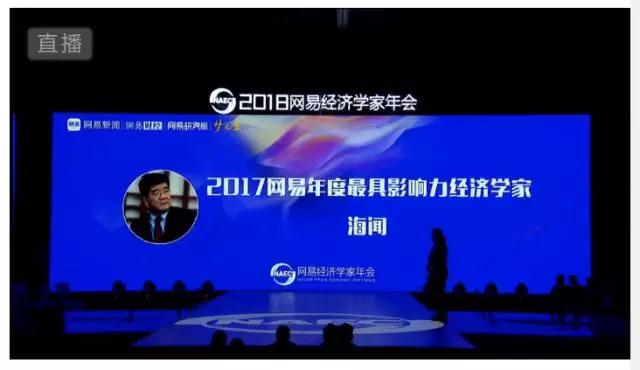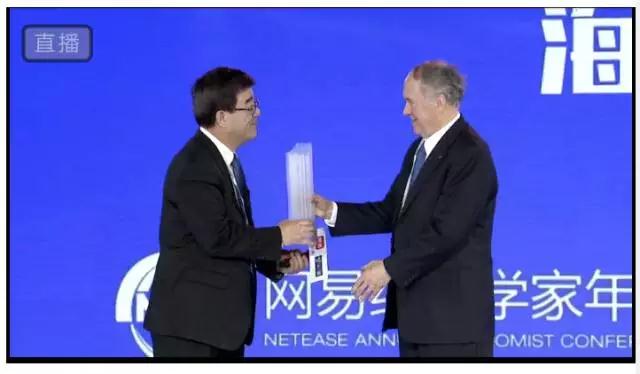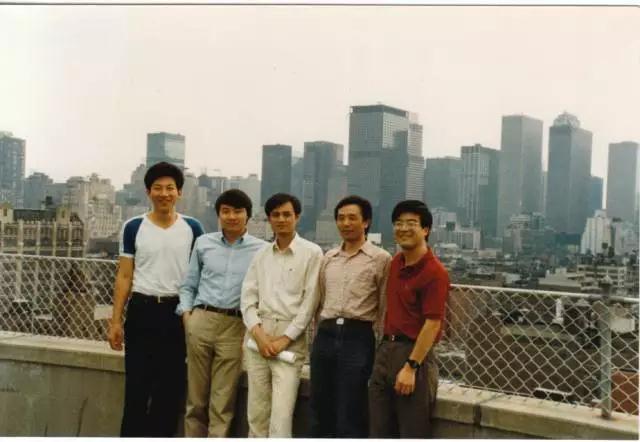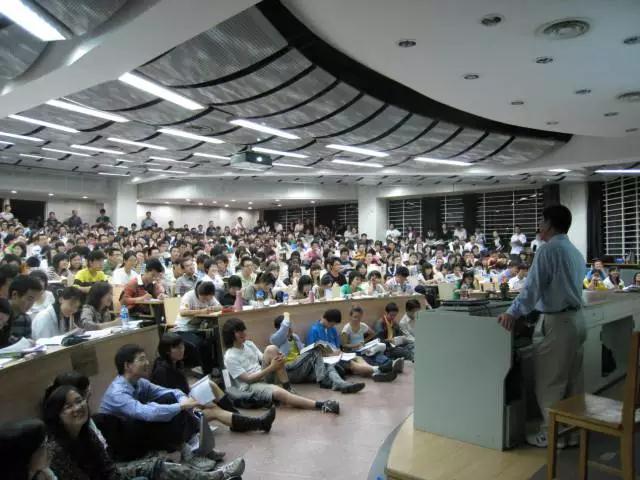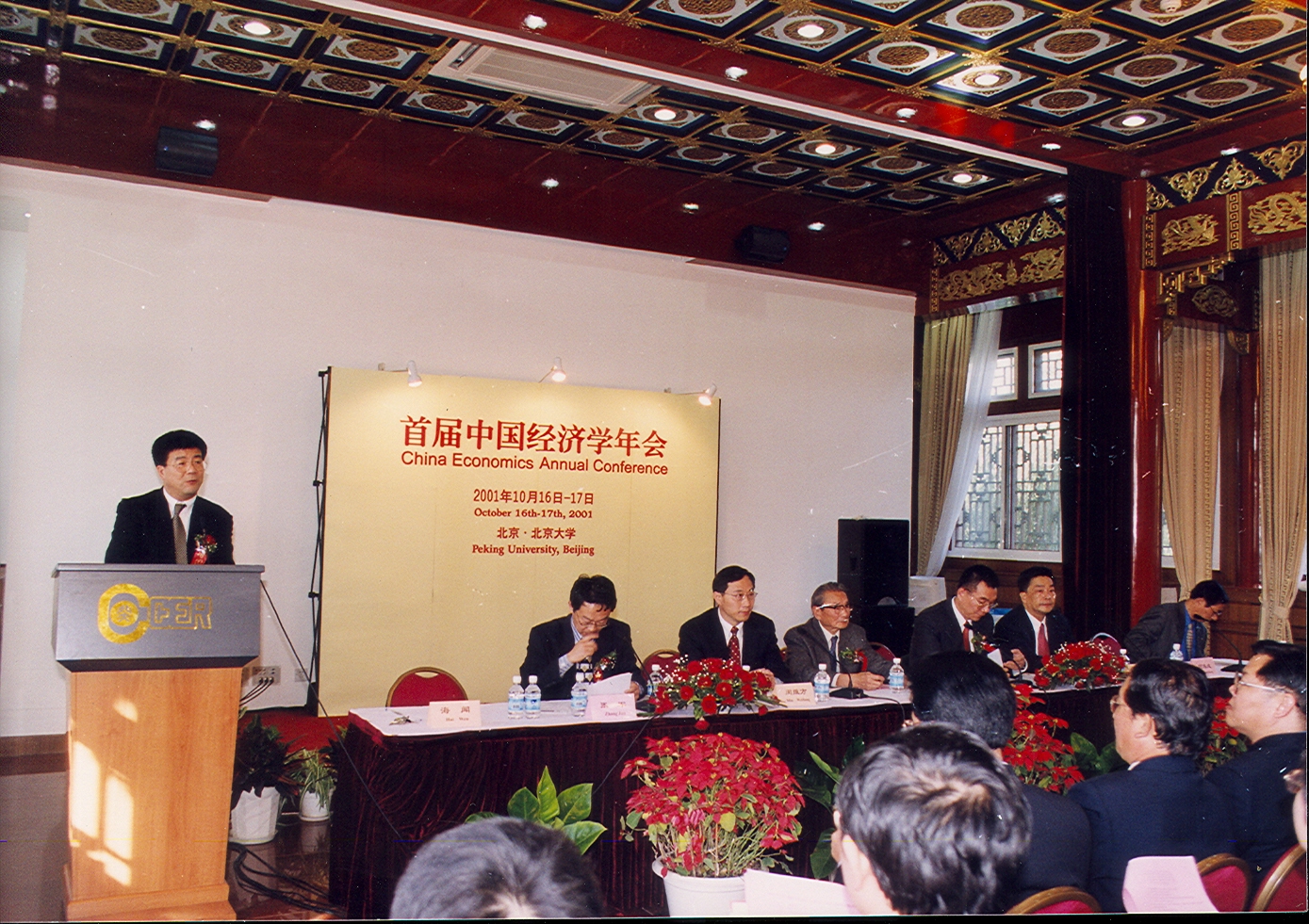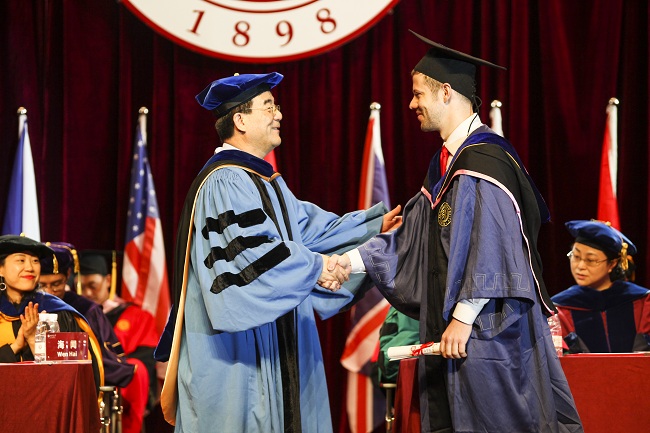▲ Peking University HSBC Business School (PHBS) Dean Wen Hai
The 2017 NetEase Annual Economist Conference was held in Beijing on December 18. After professional media nominations, online voting and final committee selection, PHBS Dean Wen Hai, vice chairman of Peking University School Council, was awarded the NetEase 2017 Most Influential Economist.
▲The award ceremony
▲Professor Edward C.Prescott, 2004 Nobel laureate in economics presents the award to Dean Wen Hai
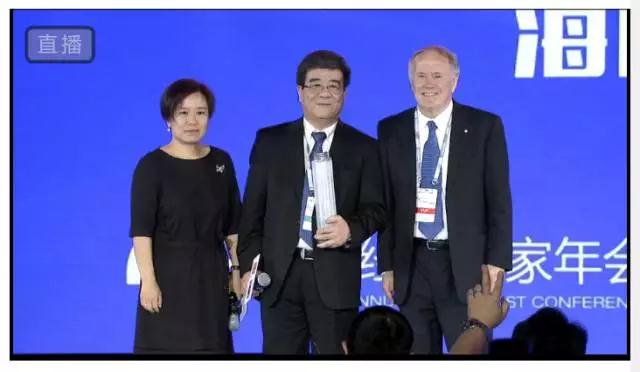 ▲
▲From left to right: Netease Media CEO Li Li, Dean Hai and Professor Edward C.Prescott
Here is the NetEase prize announcement:
“Wen Hai is one of the first batch of economists coming back home helped build modern China since the reform and opening up policy. He is a co-founder of the Peking University China Center for Economic Research and established CENET, China’s biggest specialized website for economic research and education, and China Economics Annual Conference.
Formerly, Prof. Hai held the post of Peking University (PKU) vice-president, but he preferred to focus on teaching, and his course Principles of Economics has been one of the PKU students’ favorite courses. His textbook,
International Trade also is considered a classic. Moreover, Prof. Hai established Peking University HSBC Business School and serves as the school’s dean. After years of development, PHBS is China’s most internationalized business school.
In 2017, not only did he establish a PHBS research center with Thomas Sargent, the 2011 Nobel laureate in economics, but also the PHBS UK campus in Oxfordshire, England for teaching modern economic research and education.”
▲ Wen Hai at Hulin as one of the “educated youths to the countryside”
From his hometown Hangzhou, Zhejiang to Hulin County, Heilongjiang, Wen Hai started his nine years’ “educated youth to the countryside” experience. Recalling this period, Prof. Hai said, “From 17 years old to 26 years old, I dedicated the best time of my life to the Great Northern Wilderness in Heilongjiang Province. This experience sharpened my will and also laid the foundation for my future development.”
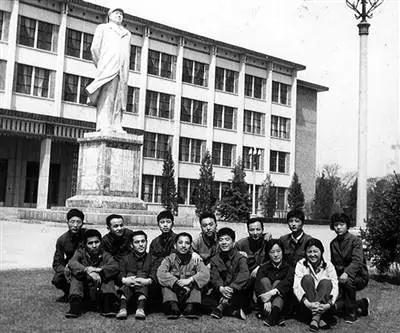 ▲
▲ Wen Hai with his classmates at Peking University
In 1977, Wen Hai was enrolled by Peking University, Department of Economics. He valued the four years in Peking University. He said, “these four years changed my knowledge composition, enlarged my knowledge range and broadened my horizon, which eventually helped me to strengthen my self-confidence and courage.”
▲ CES first session of council members in New York, 1985
From right to left: Wen Hai, Xiaokai Yang, Yingyi Qian, Huijin Wang, Dahai Yu
In 1985, Wen Hai co-founded The Chinese Economists Society (CES), which not only advanced communication among economists both domestically and internationally, but also accelerated the modernization of economic research and education in China. Those who made joint endeavors with him, including Gang Yi, Yingyi Qian, Guoqiang Tian , Min Zhu, Min Tang, Yushi Mao, and others, are today renowned economists in academic circles.
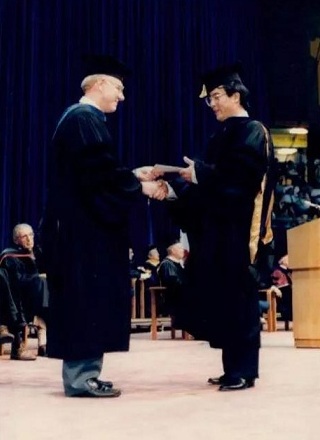 ▲
▲Wen Hai commences his PhD Economics degree at the University of California, Davis
In 1991, Hai commenced work toward his PhD degree in economics at the University of California, Davis. Even during his overseas education, he still paid keen attention to China’s economic reform. Immediately after graduation, Hai returned to his homeland. He said the reason was that people of his era had a strong sense of responsibility and longed for making contributions to China.
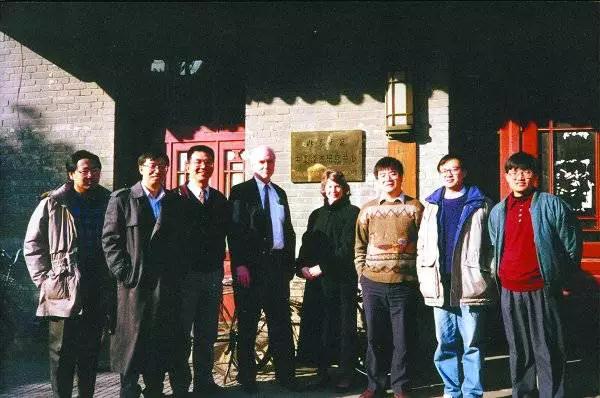 ▲
▲CCER former site
From left to right: Fan Zhang, Gang Yi, Yifu Lin, Dwight H. Perkins,Julie Rate Perkins, Wen Hai,
Mingde Yu, Weiying Zhang
▲Professor Wen Hai's lectures always drew a full house
In 1994, Wen Hai, Yifu Lin, Gang Yi, and Weiying Zhang co-founded the China Center for Economic Research (CCER), which then laid the foundation for the establishment of National School of Development, one of the most important national think-tanks in China.
 ▲Yifu Lin, Jiwei Lou and Wen Hai at CCER-NBER annual conference
▲Yifu Lin, Jiwei Lou and Wen Hai at CCER-NBER annual conference
In 1997, Wen Hai and Martin Feldstein co-founded the CCER-NBER annual conference. It has become an important means for U.S. economists to understand China’s economic trends and for economists from both sides to exchange insights on China’s reform and development. The National Bureau of Economic Research (NBER), the largest U.S. economics research organization, and CCER, China’s high-level think tank, have co-hosted 20 CCER-NBER annual conferences.
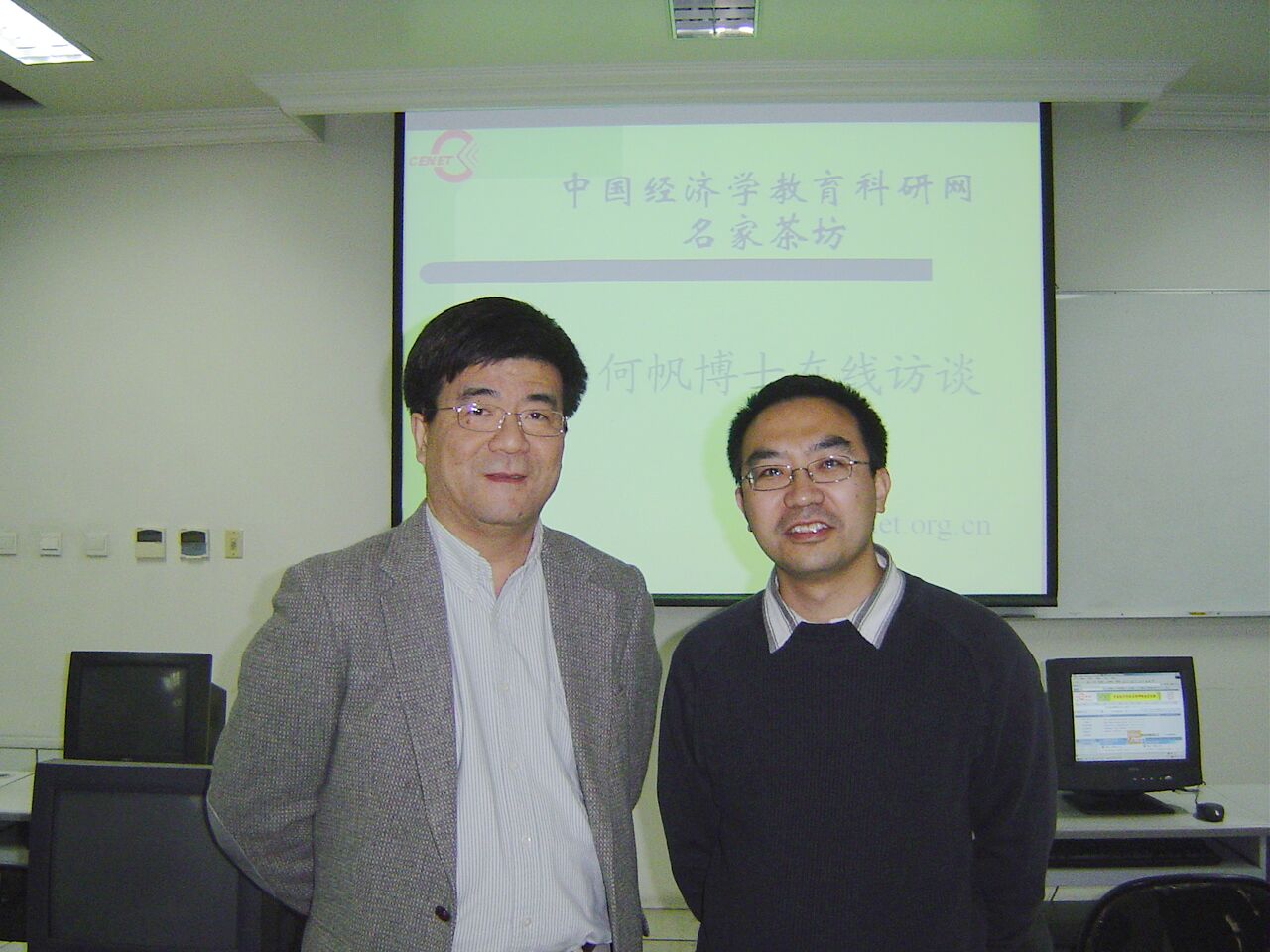
▲ Wen Hai with Dr. He Fan, who participated in the CENET "Famous Scholar Tea House" event. Fan He is currently the director of the PHBS Research Institute of Maritime Silk Road (RIMS).
In 1998, Wen Hai founded the CENET website focusing on China’s economic research and education. As one of the earliest large-scale professional academic websites and the most influential economic online platform in China, the website has influenced and contributed to the creation and development of many financial and economic websites. It has taken the lead in conducting online interviews, opening economics resource library and economic blogs, and more.
▲Wen Hai delivers a speech at the first China Economics Annual Conference in October 2001.
In 2001, Wen Hai initiated the founding of the China Economics Annual Conference, which was the first academic event in China to cover a wide range of subjects in economics, including essays, reports, academic lectures, professional forums, and summer training programs. With thousands of young scholars and students submitting and presenting their research papers, the conference has nurtured many outstanding young economists. This year marks its 17th annual conference.
▲Dean Hai officiates at the 2016 commencement ceremony
In 2004, Wen Hai founded Peking University HSBC Business School (PHBS), formerly Peking University Shenzhen Business School and served as PHBS dean. Since its establishment, PHBS has remained devoted to hiring talented scholars, developing excellent teaching methods, and building and outfitting a state-of-the-art educational facility. PHBS passed EPAS accreditation (European Foundation for Management Development Programme Accreditation System), a world-renowned designation that demonstrates an institution’s dedication to maintaining rigorous and international academic programs. This year, the Sargent Institute for Quantitative Economics and Finance, led by Nobel laureate in economics Thomas J. Sargent, was founded at PHBS, creating a new model for Chinese universities to introduce international top talent in social sciences.
▲PHBS UK Campus
In 2017, Wen Hai took the lead in establishing the PHBS UK campus. It has been reported that “not only is this new investment a milestone for PKU but also for the development of China’s higher education.” This is the first time that one of China's institutions of higher learning has entered a developed country to independently administer an overseas, self-owned campus with degree programs.
For decades, Professor Wen Hai has been devoting to China's economics education, academic research and reform and is regarded as "the most entrepreneurial economist in China".
By Annie Jin & Sophie Wu
Edited by Priscilla Young






